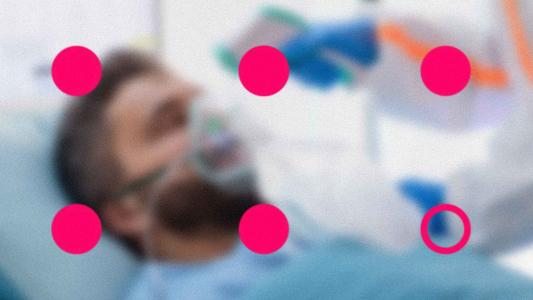In response to the pandemic, regulators and biotech companies are finding ways to dramatically accelerate the vaccine development process — instead of taking the usual 10 to 15 years, they expect they might have a coronavirus vaccine in less than one.
Still, one group of scientists wants protection against COVID-19 now.
So, rather than going through the standard development process — and waiting for approvals from regulators and conducting ever-larger trials — they developed a DIY coronavirus vaccine to test on themselves.
The DIY Coronavirus Vaccine
The group — the Rapid Deployment Vaccine Collaborative (RaDVaC) — launched in March when biologist Preston Estep asked some of his acquaintances if they’d be interested in working together on a DIY coronavirus vaccine, MIT Technology Review reported.
After pouring over existing research on vaccines for the coronaviruses SARS and MERS, the group came up with a nasal vaccine candidate made from just five ingredients, all of which can be delivered via mail.
RaDVaC has since sent the ingredients to more than 70 people, who then mix and self-administer the vaccine. Others interested in taking the DIY coronavirus vaccine can access the group’s white paper to find out what they need to make it.
Estep told Technology Review he wasn’t sure how many people have actually taken the vaccine, but the number is above 20, and well-known Harvard geneticist George Church is among the guinea pigs.
The Potential Risks
Because RaDVaC distributes only the unmixed ingredients for the vaccine and isn’t trying to make money off of it, Estep believes the project doesn’t fall under the FDA’s jurisdiction.
“If you are just making it and taking it yourself, the FDA can’t stop you,” he said.
But while Estep believes that what RaDVaC is doing is fully legal, the FDA has yet to comment.
We are offering one more tool to reduce the chance of infection.
Preston Estep
The safety of the DIY coronavirus vaccine is also unconfirmed, but the RaDVaC scientists don’t appear concerned.
“I think we are at much bigger risk from COVID considering how many ways you can get it, and how highly variable the consequences are,” Church told Technology Review.
But in the past, some vaccine candidates have been known to make the diseases they’re supposed to protect against worse, a side effect known as “enhancement.”
Enhancement can be caught during animal testing — as it was during the development of an experimental SARS vaccine in 2004 — but the RaDVaC team skipped right over that testing phase.
Will It Work?
Even if enhancement isn’t a side effect of the DIY coronavirus vaccine, some scientists say they have little hope that it will be able to offer any protection against COVID-19.
As vaccine expert George Siber told Technology Review, the ingredient expected to prompt the creation of coronavirus antibodies — short protein fragments called “peptides” — typically doesn’t trigger much of an immune response at all.
Additionally, he said he’d never heard of anyone successfully administering the same type of vaccine that the RaDVaC team created via a nasal spray.
Another DIY coronavirus vaccine initiative, Project McAfee, might have a better shot at offering protection.
For that one, famed biohacker Josiah Zanyer and two collaborators are recreating a vaccine that’s already been proven effective in macaque monkey experiments — and then injecting it into themselves.
Still, even in the absence of any evidence that it provides protection against COVID-19, Estep thinks RaDVaC’s DIY coronavirus vaccine is worth taking.
“We are offering one more tool to reduce the chance of infection,” he said. “We don’t suggest people change their behavior if they are wearing masks, but it does provide potentially multiple layers of protection.”
We’d love to hear from you! If you have a comment about this article or if you have a tip for a future Freethink story, please email us at tips@freethink.com.
